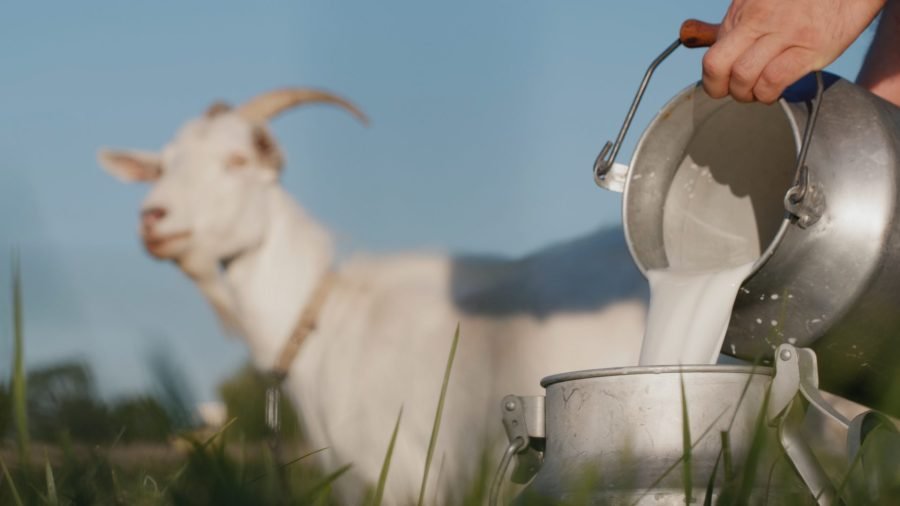Can a Breastfeeding Mother Drink Goat’s Milk?
Breastfeeding mothers often consider various dietary choices to ensure their own health and the well-being of their nursing infants. Among these considerations is whether consuming goat’s milk is a suitable option. Let’s delve into the topic to understand the implications and considerations involved:

1. Allergy Considerations:
Goat’s milk is often suggested as an alternative to cow’s milk for individuals with lactose intolerance or cow’s milk allergy (CMA). However, it’s essential to recognize that goat’s milk contains similar proteins to cow’s milk, which can still trigger allergic reactions in some individuals, including breastfeeding infants. Therefore, if a baby is allergic to cow’s milk protein, there is a risk that they may also react to proteins in goat’s milk.
2. Nutritional Profile:
Goat’s milk differs slightly in composition from cow’s milk. It contains less lactose and a different protein structure, which some people find easier to digest. Additionally, goat’s milk is naturally higher in certain nutrients such as calcium, potassium, and vitamin A compared to cow’s milk. While these differences may be beneficial for some individuals, it’s important to note that breast milk remains the optimal source of nutrition for infants.
3. Impact on Breast Milk:
Consuming goat’s milk by the breastfeeding mother may lead to trace amounts of goat’s milk proteins passing into her breast milk. For most infants, these trace amounts are unlikely to cause any adverse reactions. However, if a baby has a known allergy to cow’s milk protein or experiences symptoms such as eczema, gastrointestinal discomfort, or respiratory issues, it may be prudent to avoid goat’s milk consumption by the breastfeeding mother.
4. Individual Considerations:
Every breastfeeding relationship is unique, and what works for one mother-infant pair may not be suitable for another. Some breastfeeding mothers may find that consuming goat’s milk has no discernible impact on their infants, while others may notice adverse reactions. It’s essential for mothers to pay attention to their baby’s cues and consult with healthcare professionals if they have any concerns about their baby’s health or development.
5. Moderation and Variety:
If a breastfeeding mother chooses to consume goat’s milk, it should be done in moderation as part of a balanced diet. Variety in the maternal diet can also be beneficial for introducing a wide range of flavors to the breast milk, potentially encouraging varied tastes in the infant’s palate. However, sudden or excessive changes in the maternal diet should be approached cautiously to monitor any potential effects on the baby.

Conclusion:
In conclusion, whether a breastfeeding mother can drink goat’s milk depends on various factors, including the baby’s health, potential allergies, and individual responses. While goat’s milk offers some nutritional benefits and may be tolerated by some infants, it’s essential to exercise caution and monitor for any adverse reactions. Breast milk remains the gold standard for infant nutrition, and breastfeeding mothers should prioritize maintaining a balanced diet and consulting healthcare professionals for personalized advice on dietary choices during lactation.

